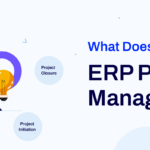Being a technical project manager is not just about checking tasks or meeting deadlines. You coordinate with developers, designers, and stakeholders. You solve problems, handle risks, and keep projects on track.
You’re the bridge between developers, designers, and stakeholders to make sure everyone is on the same page.
Some skills come naturally, like communication and problem-solving. Others, such as using the right tools or managing complex workflows, require experience. Together, these skills determine whether a project succeeds or stalls.
In this guide, you will learn the essential technical project manager skills, discover tools that actually help, and see real examples of managers leading projects effectively.
So, let’s get started!
What Are Technical Project Manager Skills?

Technical project manager skills are the abilities that help a manager plan, execute, and deliver complex projects successfully. These skills cover both technical knowledge and management capabilities.
On the technical side, a manager needs to understand systems, software, and workflows. This helps them communicate effectively with developers and make informed decisions.
On the management side, skills like communication, problem-solving, and risk management keep the team aligned and the project moving forward.
In short, technical project manager skills combine knowledge, leadership, and practical tools.
They allow a manager to handle challenges, coordinate teams, and deliver results on time.
Why Technical Project Manager Skills Matter
Technical project manager skills are crucial because they directly influence how smoothly a project runs and how well a team performs. Strong skills prevent confusion, delays, and mistakes.
- Better decision-making – A manager with the right skills can evaluate options quickly and choose the solution that keeps the project on track.
- Efficient communication – Clear communication reduces misunderstandings between developers, designers, and stakeholders.
- Problem-solving – Skilled managers identify issues early and fix them before they become major roadblocks.
- Team coordination – These skills help align everyone’s work, priorities, and timelines, ensuring smooth collaboration.
- Risk management – Anticipating risks and planning for them prevents costly delays or project failures.
Having these skills ensures that projects run efficiently, teams stay productive, and outcomes meet expectations.
30 Technical Project Manager Skills You Should Have in 2026

In today’s complex and fast-paced business landscape, the role of a successful project manager goes beyond technical proficiency alone.
It requires a unique combination of soft skills, hard skills, and technical skills to effectively lead and deliver projects.
| Soft Skills | Hard Skills | Technical Skills |
|---|---|---|
| 1. Communication | 14. Budgeting and Financial Management | 22. Project Management Software |
| 2. Leadership | 15. Research Skills | 23. Agile Methodologies |
| 3. Emotional Intelligence | 16. Report Generation Skills Using Software | 24. Waterfall Methodology |
| 4. Problem-Solving and Decision Making | 17. Manual Report Generation Ability | 25. Earned Value Management (EVM) & Critical Path Analysis (CPA) |
| 5. Time Management | 18. Documentation Skills | 26. Data Analysis Tools |
| 6. Collaboration and Teamwork | 19. Enough Business Knowledge | 27. Communication and Collaboration Tools |
| 7. Adaptability and Flexibility | 20. Performance Tracking & KPIs | 28. Certificates in Technical Project Management |
| 8. Conflict Resolution | 21. Resource Allocation | 29. AI & Automation Tools for Project Management |
| 9. Stakeholder Management | 30. Cloud-Based Collaboration Tools | |
| 10. Motivation and Team Building | ||
| 11. Risk Management | ||
| 12. Decision-Making Under Pressure | ||
| 13. Adaptability to Remote Teams |
Let’s have a look at the soft skills first.
Required Soft Skills for a Technical Project Manager

Soft skills encompass interpersonal and communication abilities. This set of skills enables project managers to build strong relationships, motivate teams, and navigate through challenges.
Here are some essential soft skills for project management success:
1. Communication
Strong verbal and written communication skills are crucial for effectively conveying project goals, expectations, progress, and requirements to team members, stakeholders, and clients.
Because clear and concise communication helps ensure everyone is on the same page and promotes collaboration.
The way you communicate with members of your team can affect the progress of your project. If the progress turns away unexpectedly then it is a good idea to take a step back and hold a meeting by having a discussion.
2. Leadership
Project managers need to inspire and guide their teams toward achieving project objectives. Leadership skills involve setting a clear vision, providing direction, and empowering team members.
Also, they need to gain expertise in resolving conflicts and fostering a positive and productive team environment.
Telling others what to do is NOT leadership at all. Keeping in touch with your subordinates is also not part of leadership.
Leadership means that you communicate the vision and idea of the project to your subordinates. When times are bad, you may need to motivate your co-workers so they gear up again.
You do not have to look too hard to see who is not being attentive or absent-minded.
Use the WP ERP to monitor who checked in late and is doing it more than often. Or you could see who is frequently absent from work.

These are signs that you as a leader can notice and have a discussion with your subordinates.
3. Emotional Intelligence
Being aware of and managing one’s emotions and understanding the emotions of others is important for successful project management.
Emotional intelligence enables project managers to empathize with team members, handle conflicts with tact, and build strong relationships based on trust and respect.
4. Problem-Solving and Decision Making
Effective project managers possess strong problem-solving skills to identify issues, analyze potential solutions, and make informed decisions. And, they can evaluate risks, assess alternative options, and implement effective problem-solving strategies.
Making sound decisions in time is also a significant part of a technical project manager’s skill and you cannot be hesitant about making a decision. If the situation is very serious, it is a good idea to talk to your subordinates and seniors before making a decision.
5. Time Management
Project managers must be skilled in managing their own time and that of their team members. Prioritizing tasks, setting realistic deadlines, and managing resources efficiently helps ensure projects stay on track and meet deadlines.
6. Collaboration and Teamwork
Project managers work closely with diverse teams and stakeholders. Collaboration skills involve fostering teamwork and promoting effective communication.
Moreover, they should have skills in creating an inclusive and supportive environment that encourages cooperation and collaboration.
7. Adaptability and Flexibility
Projects often encounter changes, unexpected challenges, and shifting priorities. Therefore, you need to be adaptable and flexible. It allows you to adjust plans, reassign resources, and find solutions in dynamic environments.
8. Conflict Resolution
Conflicts may arise during projects, and the ability to address them effectively is crucial. Project managers should be skilled in managing conflicts constructively, facilitating open communication, and finding win-win solutions.
9. Stakeholder Management
Building strong relationships with stakeholders is essential for project success. Project managers should actively engage with stakeholders, listen to their concerns, manage expectations, and ensure their needs are addressed throughout the project.
10. Motivation and Team Building
Project managers should inspire and motivate their team members to perform at their best.
Because, building a positive team culture, recognizing achievements, providing feedback, and fostering a sense of purpose contribute to high team morale and motivation.
11. Risk Management
The ability to identify, assess, and manage risks is critical for project managers. Effective risk management skills help in anticipating potential issues, developing mitigation strategies, and minimizing project disruptions or failures.
12. Decision-Making Under Pressure
A technical project manager often faces tight deadlines, unexpected obstacles, or sudden changes in project scope. This skill allows them to assess situations quickly, weigh options, and make confident decisions without stalling progress.
Strong decision-making under pressure prevents small problems from becoming major setbacks and keeps the entire team moving toward project goals efficiently.
13. Adaptability to Remote Teams
With teams increasingly working from different locations, time zones, and setups, a manager must be flexible and adaptable.
This skill ensures smooth communication, effective collaboration, and strong team alignment, even when members are not physically present.
It helps maintain productivity, resolve conflicts, and create a cohesive workflow despite distance and varying work styles.
Read More: Make Organized Task Management With Agile Project Management
Required Hard Skills for a Technical Project Manager

Hard skills encompass the analytical competencies necessary to plan, execute, and monitor projects with precision. Read on for the top hard skills for technical project managers.
14. Budgeting and Financial Management
Competency in managing project budgets, tracking expenses, and ensuring financial resources are allocated efficiently. Effective budgeting skills contribute to the financial success of projects and demonstrate responsible project management.
15. Research Skills
There will be times when you may have to find out why your product’s outcome was better or worse than expected. In such a case, you must analyze the data displayed on your WP ERP dashboard.
For example, the Accounting module of the WP ERP may show you that sales have been mighty but the cost overcame the revenue. For such a scenario, you may be required to explain in-dept why such an incident has happened.
Similarly, you may want to discuss the potential of a group of customers and their value, you can rate the potential customers according to their value and generate a report to explain to your organization’s directors the hidden opportunities.
16. Report Generation Skills Using Software
It is not uncommon to want to have a numerical list of products, customers, and employees for an overview. As a technical project manager, you will need to frequently, generate reports on a lot of categories.
Well, the WP ERP is perfect to auto-generate any category of reports where you can simply print and have a glance to get an idea of your project’s current update & situation.

17. Manual Report Generation Ability
Manual report generation skills are valuable when you need to create reports without relying heavily on software tools. These skills involve the ability to gather, analyze, and present information in a structured and coherent manner.
While software tools can automate certain aspects of report generation, manual skills are still essential for customizing reports, addressing unique requirements, and ensuring accuracy and clarity.
18. Documentation Skills
Technical documentation skills are crucial for effectively communicating complex information, processes, and procedures in a clear and concise manner. So, you need to convey information accurately, facilitate understanding, and promote efficient use of technology.
However, the general idea is to be able to word your thoughts that are easy to follow while maintaining a structure. Some reports may be already documented, your job would be to read through to get an idea.
For example, When UBER wanted to expand to Bangladesh, managers responsible stated they had to read the country’s transport laws to ensure Uber services would be compatible.
One manager stated that he had read the regulation document so much that he almost memorized everything.
This is a skill that has to be gained through extensive reading habits. It is not uncommon for project managers to read documents on tendering, guidelines, and laws.
We would suggest you read documents occasionally that are related to your field so you do not feel overwhelmed when a new kind of report comes in handy.
19. Enough Business Knowledge
Having a solid understanding of business knowledge allows you to make informed decisions, contribute effectively to organizational goals, and navigate the complexities of the business environment.
No technical project manager can skip this. Even in a software company, technical project managers must possess the basics of business knowledge.
In the WP ERP module, you do not need to know in-depth business calculations- it is all done for you. The accounting module has it all set for you. It is organized and structured for you. Just set the values and let the back-end server do the homework.
Besides all these skills, awareness of legal and ethical aspects of business operations is crucial. It includes knowledge of relevant laws, regulations, intellectual property rights, data protection, privacy, and ethical business practices.
20. Performance Tracking & KPIs
This skill allows a technical project manager to monitor progress and measure success using key performance indicators (KPIs). It helps identify bottlenecks, assess team productivity, and ensure that the project is moving according to plan.
Regular tracking keeps everyone accountable and allows for data-driven decisions that improve outcomes.
21. Resource Allocation
This skill ensures that people, tools, and time are assigned efficiently to tasks based on priority and capacity. Proper resource allocation prevents overload, avoids wasted effort, and ensures that the project stays on schedule.
It helps managers optimize team performance while keeping costs and timelines under control.
Required Technical Skills for a Technical Project Manager

Technical skills involve expertise in using specific tools, technologies, and methodologies relevant to the project at hand. Here are some technical skills that can contribute to project management success:
22. Project Management Software
As a technical project manager, you need to achieve proficiency in using project management software such as Microsoft Project, Jira, or Asana to plan, track, and manage project activities, resources, schedules, and budgets.
Here are some specific technical skills related to using tools in project management:
- Microsoft Project: Used for creating project plans, defining tasks, setting dependencies, allocating resources, tracking progress, and generating reports.
- Jira: Known as an issue-tracking tool, particularly in Agile environments. Suitable for creating and managing user stories, organizing sprints, tracking work progress, and managing project backlogs.
- Asana: Widely used as a collaborative work management tool, to manage project tasks, assign responsibilities, track progress, and facilitate communication and collaboration among team members.
- Trello: A visual project management tool based on boards and cards. Used for creating and organizing tasks, setting deadlines, assigning team members, and monitoring progress through a Kanban-style interface.
- GitHub: A version control repository platform, particularly in software development projects. Required for managing code repositories, branching, merging, and facilitating collaborative development among team members.
- Excel: Proficiency in Microsoft Excel for tasks such as creating and managing project budgets, conducting data analysis, generating reports, and using formulas and functions for project-related calculations.
- ClickUp: Designed to streamline workflows, enhance collaboration, and increase productivity.
23. Agile Methodologies
You should grow familiarity with Agile methodologies like Scrum or Kanban, including knowledge of Agile principles, roles, ceremonies, and artifacts. This is particularly relevant for software development projects.
24. Waterfall Methodology
Understanding the traditional Waterfall project management approach is also important. It involves a sequential process with distinct phases like requirements gathering, design, development, testing, and deployment.
25. Earned Value Management (EVM) & Critical Path Analysis (CPA)
Knowledge of EVM techniques helps to assess project performance by integrating scope, schedule, and cost metrics. Because this allows project managers to track project progress and analyze variances.
Understanding CPA techniques is required to identify the sequence of tasks critical to the project timeline. It helps to prioritize and allocate resources effectively.
26. Data Analysis Tools
Proficiency in using data analysis tools is essential for a technical project manager. These tools include Excel, Tableau, or Power BI and help managers analyze project data, create visualizations, and derive insights that support decision-making.
27. Communication and Collaboration Tools
Communication tools such as Microsoft Teams, Slack, or SharePoint facilitate team communication, file sharing, and collaboration on project deliverables. You need to know how to use these tools to succeed as a project manager.
28. Certificates in Technical Project Management
There are several certifications available for technical project managers that can enhance their skills, credibility, and career prospects. Here are some widely recognized certifications in the field of technical project management:
- Project Management Professional (PMP)
- Certified ScrumMaster (CSM)
- PRINCE2 (Foundation and Practitioner)
- CompTIA Project+
- Certified Agile Project Manager (Cert.APM)
While technical skills are important, they should be complemented by the necessary soft skills and a good understanding of project management principles and methodologies.
29. AI & Automation Tools for Project Management
This skill allows a technical project manager to leverage AI-powered tools to automate routine tasks, predict project risks, and streamline scheduling.
Using these tools reduces manual effort, improves accuracy, and frees up time to focus on strategy and team management. It also helps managers make smarter, data-driven decisions that keep projects on track.
30. Cloud-Based Collaboration Tools
This skill ensures a manager can effectively coordinate teams using cloud platforms like Jira Cloud, Notion, or Monday.com.
It enables seamless communication, real-time updates, and centralized document management, which is essential for distributed teams.
Mastering these tools helps maintain team alignment, improves transparency, and ensures tasks are completed efficiently.
Also read: How HR Manager Report Help You in Decision Making
Top FAQs on Technical Project Manager Skills
Modern TPMs must now be proficient in AI-driven project management tools that offer predictive analytics and automated resource leveling. Understanding how to manage “AI-first” development cycles, which differ from traditional software cycles due to data dependency and model training times, is becoming a critical competitive advantage.
A skilled TPM must balance speed with long-term stability by maintaining a Technical Debt Backlog. They need the negotiation skills to convince stakeholders that “pausing” for refactoring is an investment in future velocity, ensuring that short-term wins don’t lead to a total system collapse later.
The TPM acts as a “Translator.” When developers cite technical constraints and stakeholders demand features, the TPM must reframe the technical issues into business risks. By speaking “both languages,” they help both parties reach a compromise based on data rather than emotional or unrealistic expectations.
Yes, but they must possess “Technical Literacy.” While you don’t need to write production code, you must understand system architecture, API integrations, and database logic. Many successful TPMs transition from business roles by earning certifications like PMP or CSM and building a deep understanding of the SDLC.
In a startup, a TPM often acts as a “Generalist,” handling everything from QA testing to product specs. In an enterprise, the role is more “Specialized,” focusing on cross-departmental coordination, strict compliance standards, and managing complex dependencies across multiple global teams.
Wrapping up the Technical Project Manager Skills
If you want to have good technical project management skills then maintain good links with a project manager. Talk to them. Formulate and set aside questions to ask a project manager.
Tech project manager skills are not hard to possess, as today with automated Project Management tools like WP Project Manager and complete business process management solutions like WP ERP, you do not have to worry about the core tasks for you.
Learn more about-
So check out these above-mentioned tools and make your technical project management skills easier to acquire.













